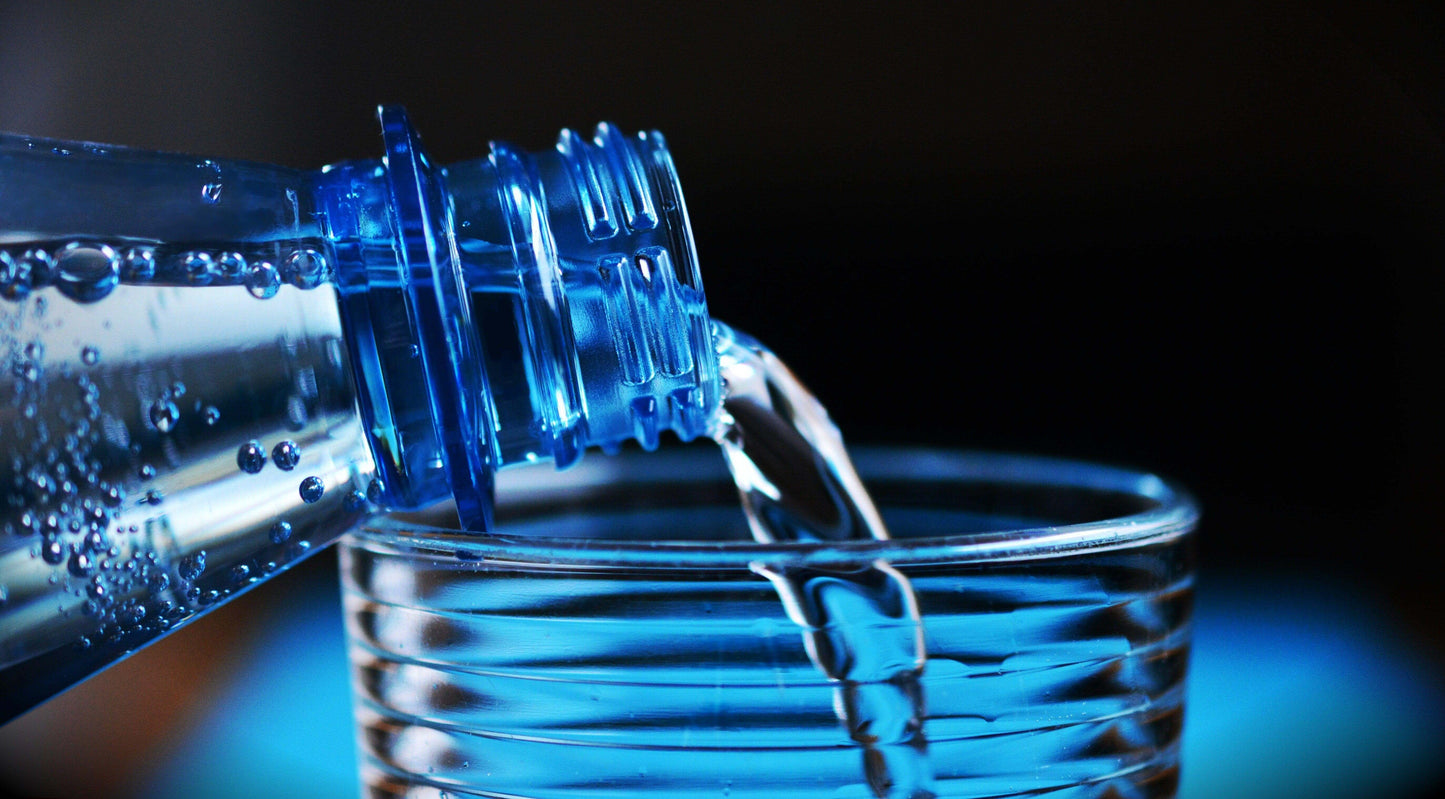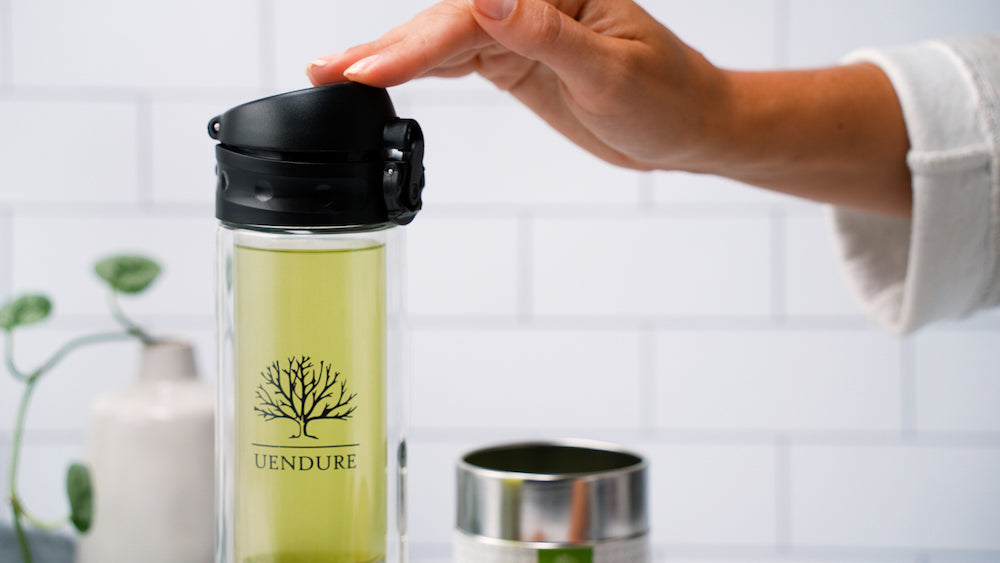Save 15% when you buy the Original Bottle Bundle!

What You Need to Know
Many people think that all water is the same. When you visit your average supermarket, you'll see several different brands of bottled water on the shelves. You might think it's ridiculous because water is water, right?
However, there are some differences between the many brands of water. For instance, some bottled water brands go through a different purification process than others.
Keep looking and at some point you'll see water that is advertised as "alkaline water." What is that all about?
When you see the term "alkaline water," the "alkaline" word refers to water that has a low acidity level.
If you purchase bottled alkaline water, then alkaline minerals were probably added to the purified water to make it less acidic.
The three most common alkaline minerals added to water include potassium, calcium, and magnesium (Leech, 2019).
You must measure the pH level of water to determine its level of acidity. The pH scale starts at 1 and goes all the way up to 14.
If the water has a pH level of between 1 and 7, then it means it is very acidic. If the pH level if between 8 and 14, then it means the water is very alkaline and less acidic (Goldman & Nagelberg, 2019).

If you were to drink regular bottled water or tap water, it would have a lower pH level than alkaline water. The standard pH level of tap water and bottled water is between 5 and 7.
Even if it goes through a purification process, the acidity level is not usually affected all that much.
Water with added alkaline minerals will have a pH level of 8 or 9. It might not seem like a big difference, but it is.
The Natural Balance of Acids
The human body needs a healthy balance of acids in its bloodstream. You shouldn't have too much or too little acid in the blood. The normal pH range of blood is between 7 and 8. Anything higher or lower than these levels can be harmful to you.

Our kidneys and lungs have a natural ability to regulate the pH level of the blood. If the blood is too acidic, then your kidneys will absorb the carbonic acids and reduce their secretion in the blood.
On the other hand, if your blood is too alkaline, then your lungs release carbon dioxide into the body to balance out the pH level by delivering more acid to the blood.
There are caveats
You don't want to have your pH level go over nine because then you could develop alkalosis. However, that usually happens in people who suffer from a potassium deficiency disorder called hypokalemia.
In most cases, it is virtually impossible to have a high level of pH in the blood because the body naturally produces acids each time you breathe.
Unfortunately, it becomes more difficult for the human body to reduce its acidic levels in the blood because people consume so much bottled water and tap water with high acidic levels in them.
The kidneys can only do so much to reduce these acids in the blood. If you consume too much acidic water, then it becomes overwhelming for the kidneys.
When someone consumes highly acidic water over long periods of time, they develop a health condition called acidosis.
Some of the symptoms of acidosis include increased heart rate, headaches, fatigue, breathing problems, weakened appetite, low energy, and sleepiness (Allen, 2018).
How to Get Alkaline Water
How do you prevent acidosis in the body? Well, there is one solution that is inexpensive and can work very well. You need to replace your regular drinking water with alkaline water.
For example, if you usually purchase bottled water in the store, then consider purchase bottled alkaline water instead. Sometimes it is advertised as "smart water" or something similar. Look at the label to find out.

Alternatively, you can add baking soda or pH tablets to any purified water and consume it that way. You should never drink tap water under any circumstances unless it has been filtered.
Tap water contains a lot of other harmful chemicals and elements besides acids. So, if you have an excellent home purifier, then use that to purify your tap water. Then add the baking soda or pH tablets to create alkaline water.
As you begin consuming alkaline water regularly, the acidic levels of your blood should decrease back to the healthy pH range of 7 to 8. Again, don't worry about having too much alkaline in the blood because your lungs will continue to balance the pH by producing carbon dioxide for the blood.
Here are the main benefits you will experience from alkaline water and having a pH balance in the blood:
- Better hydration
- Stronger immune system
- Less stress
- Stronger and healthier bones
- Fewer toxins and free radicals
- More energy
- Weight loss
- Cancer resistance
- Better appetite
- Smoother and clearer skin
- Cleaner colon
- Better breathing
- Better sleep
These are just the short-term advantages of alkaline water. According to a study mentioned on Goldman & Nagelberg (2019), consuming alkaline ionized water has been found to reduce cholesterol, blood pressure and the risk of getting diabetes.
Conclusion
When you review all the evidence, it is clear that alkaline water is a much better alternative to regular bottled water and tap water.
You will consume the necessary alkaline minerals that reduce the acidic content of the blood. As a result, you will feel better, look better, and be healthier for many years to come.
Allen, S. (2018, October 6). Acidosis: Symptoms, Causes, and Treatment for Blood pH Levels. Retrieved July 26, 2020, from https://www.healthline.com/health/acidosis
Goldman, R., & Nagelberg, R. (2019, May 30). What Are the Benefits and Risks of Alkaline Water? Retrieved July 26, 2020, from https://www.healthline.com/health/food-nutrition/alkaline-water-benefits-risks
Leech, J. (2019, September 25). The Alkaline Diet. Retrieved July 26, 2020, from https://www.healthline.com/nutrition/the-alkaline-diet-myth



I LUV EVERYTHING ABOUT UENDURE… THE NAME OF THE COMPANY, THE ACCESSORIES AND THE CAFFEINNE FREE TEAS ARE PURE AND EXCELLENT QUALITY, JUST AS THE OWNER.
SIMPLY: LUV & THANKS UENDURE